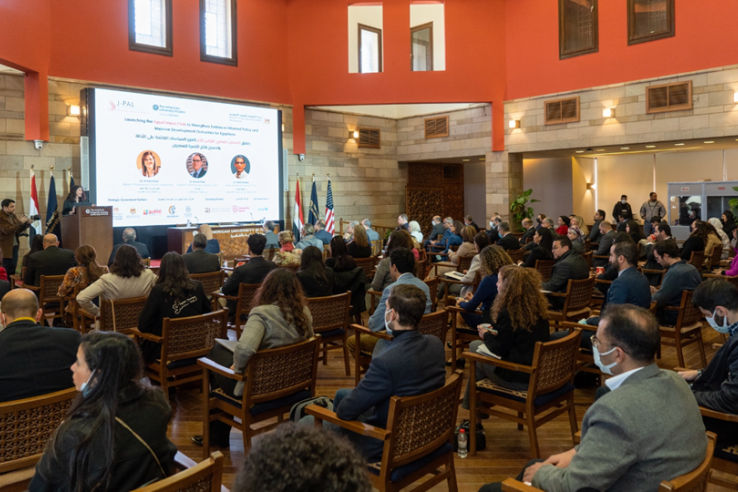Displaying 7321 - 7335 of 7726
Research resource
This section is intended to provide an intuitive discussion of the rationale behind power calculations, as well as practical tips and sample code for conducting power calculations using either built-in commands or simulation. It assumes some knowledge of statistics and hypothesis testing. Readers...
Research resource
This resource is intended for researchers who are designing and assessing the feasibility of a randomized evaluation with an implementing partner. We outline key principles, provide guidance on identifying inputs for calculations, and walk through a process for incorporating power calculations into...
Research resource
The goal of measurement is to get reliable data with which to answer research questions and assess theories of change. Inaccurate measurement can lead to unreliable data, from which it is difficult to draw valid conclusions. This section covers key measurement concepts, means of data collection...
Research resource
This section covers the essentials of survey design. It includes an overview of survey development, practical tips, formatting suggestions, and guides to translation and quality control.
Research resource
This resource covers practical advice on managing grants for principal investigators (PIs) and research staff. We include overarching tips to help ensure smooth grant management throughout the project; define and explain common terms and conditions; discuss final deadlines and no-cost extensions...
Research resource
This resource provides guidance for researchers wishing to register their study in a public trial registry. We list common social science registries and registration policies of common funders and economics journals. We additionally describe registration considerations such as the level of detail to...
Research resource
A pre-analysis plan (PAP) describes how researchers plan to analyze the data from a randomized evaluation. It is distinct from the concept of pre-registration, which in economics is the act of registering a research project in a registry such as the AEA RCT Registry before the intervention begins...
Research resource
This resource is intended as a practical guide for researchers to use when considering the ethics of a given research project. It draws heavily from J-PAL’s own ethics training for research staff and Rachel Glennerster and Shawn Powers’s chapter in the Oxford Handbook of Professional Economic Ethics...
Research resource
This resource outlines steps to establish and build a strong working relationship with an implementing partner at the beginning of a randomized evaluation. Topics include questions to consider when developing a project scope, timeline, communications strategy, and formal agreements between...
Research resource
This resource guides researchers through background research and early discussions with a program implementer who has expressed interest in a randomized evaluation, and with whom a partnership seems potentially viable. It provides guidelines for researchers to conduct early conversations with twin...
Research resource
J-PAL North America’s Evaluation Toolkit is intended for researchers, research managers, research assistants, and students trained in economic theory and research design who are preparing to launch a prospective randomized evaluation. Research organizations have published a number of useful...
Research resource
The first step in embarking on a research project is often writing the grant proposal to fund it. Outside of securing funding for your project, the main purpose of the grant is to lay out your research question and methodology, explain its value to the research and/or policy community, and...
Research resource
This checklist provides guidance on the logistical and administrative steps that are necessary to launch a randomized evaluation that adheres to legal regulations, follows transparency guidelines required by many academic journals, and complies with security procedures required by regulatory or...
Resource
Basic page
Resource
Basic page
The Egypt Impact Lab seeks to strengthen evidence-informed policy and improve development outcomes for Egyptians.

